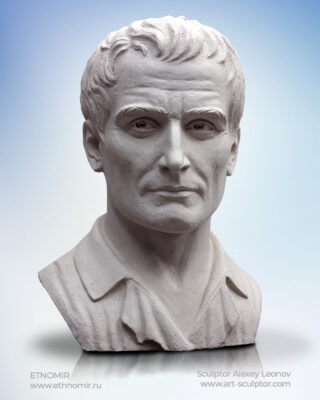Jean-Jacques Rousseau. 2015
Author: Alexey Leonov
Material: Chamotte
Location: "ETNOMIR" Cultural Education Center
“The world of reality has its limits; the world of imagination is boundless”.
Jean-Jacques Rousseau
1712 – 1778
Teacher, writer, composer, philosopher, developer of the concept of direct form of governance .
Rousseau was the most influential representative of French sentimentalism, the last and most active stage of the Enlightenment. In the theory of civil society, he advanced the principle of the sovereignty of the people, tried to reform the education, basing it solely on the development of feelings and speaking with criticism of the estate-feudal upbringing system, which suppressed the child’s personality.
He attached particular importance to labor education. Having kept faith in God, he appealed not to reason, but to religious feeling, which lives in the heart, the inner voice of conscience. He was an opponent of a corrupt civilization, a supporter of a return to nature, simplicity and the rule of the people.
WORKS “Narcissus, or The Self-Admirer: A Comedy”, “Discourse on the Arts and Sciences”, “Le Devin du Village”, “Discourse on the Origin and Basis of Inequality Among Men”, “Julie, or the New Heloise”, “Emile, or On Education”, “Pygmalion: a Lyric Scene”, “Dialogues: Rousseau Judge of Jean-Jacques”.




